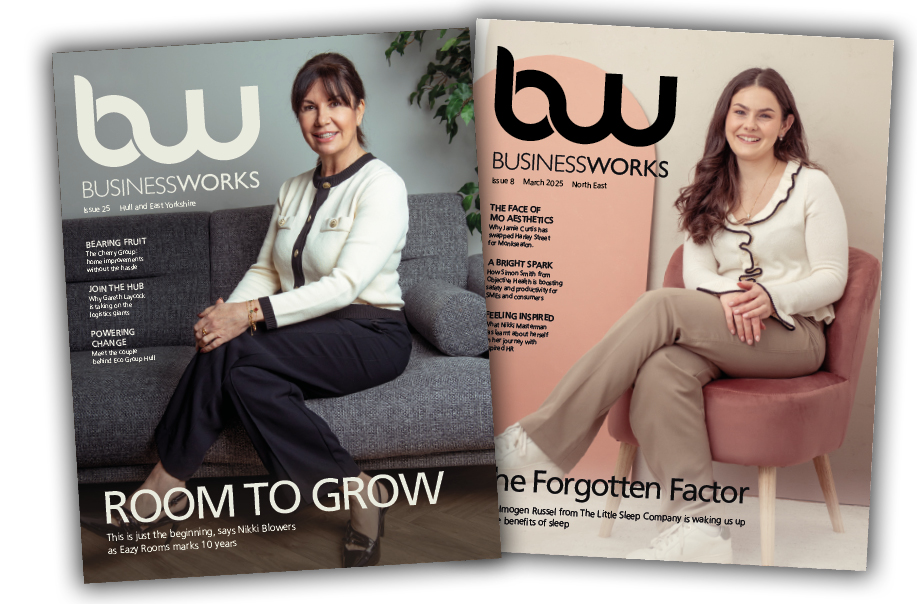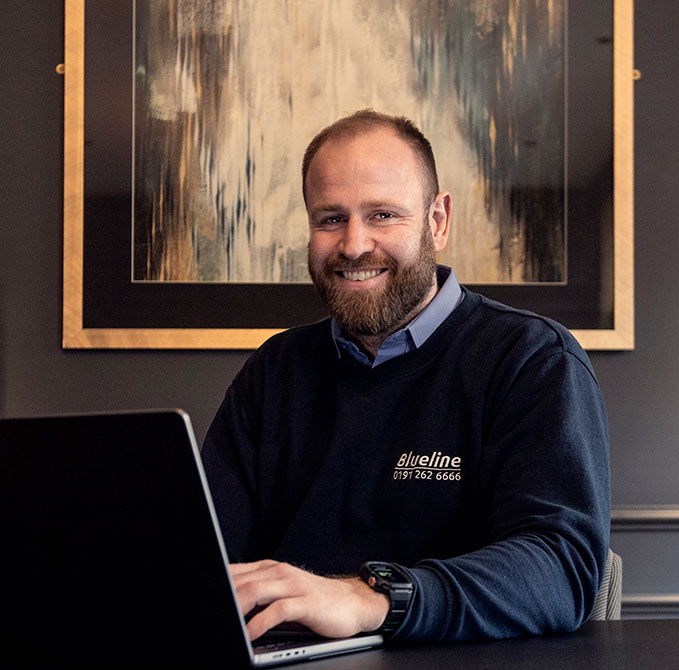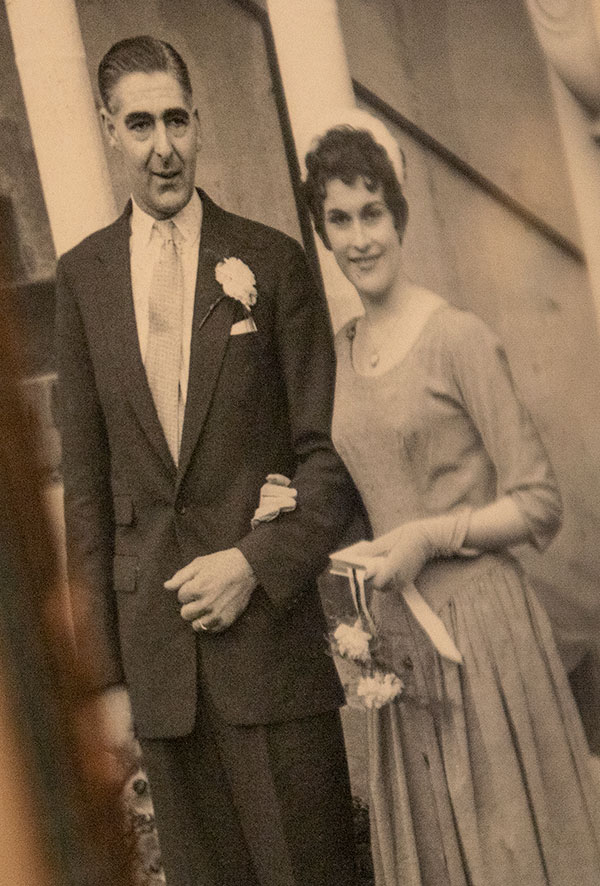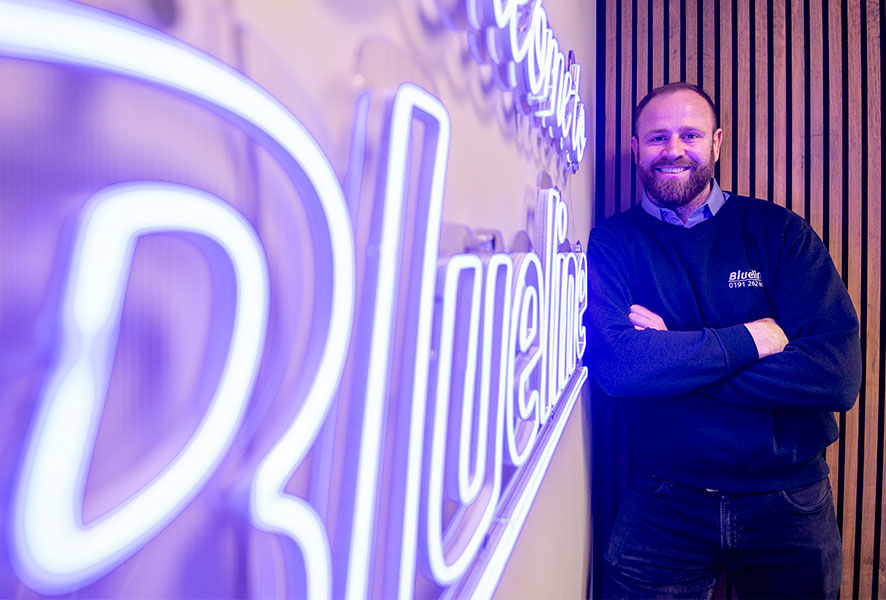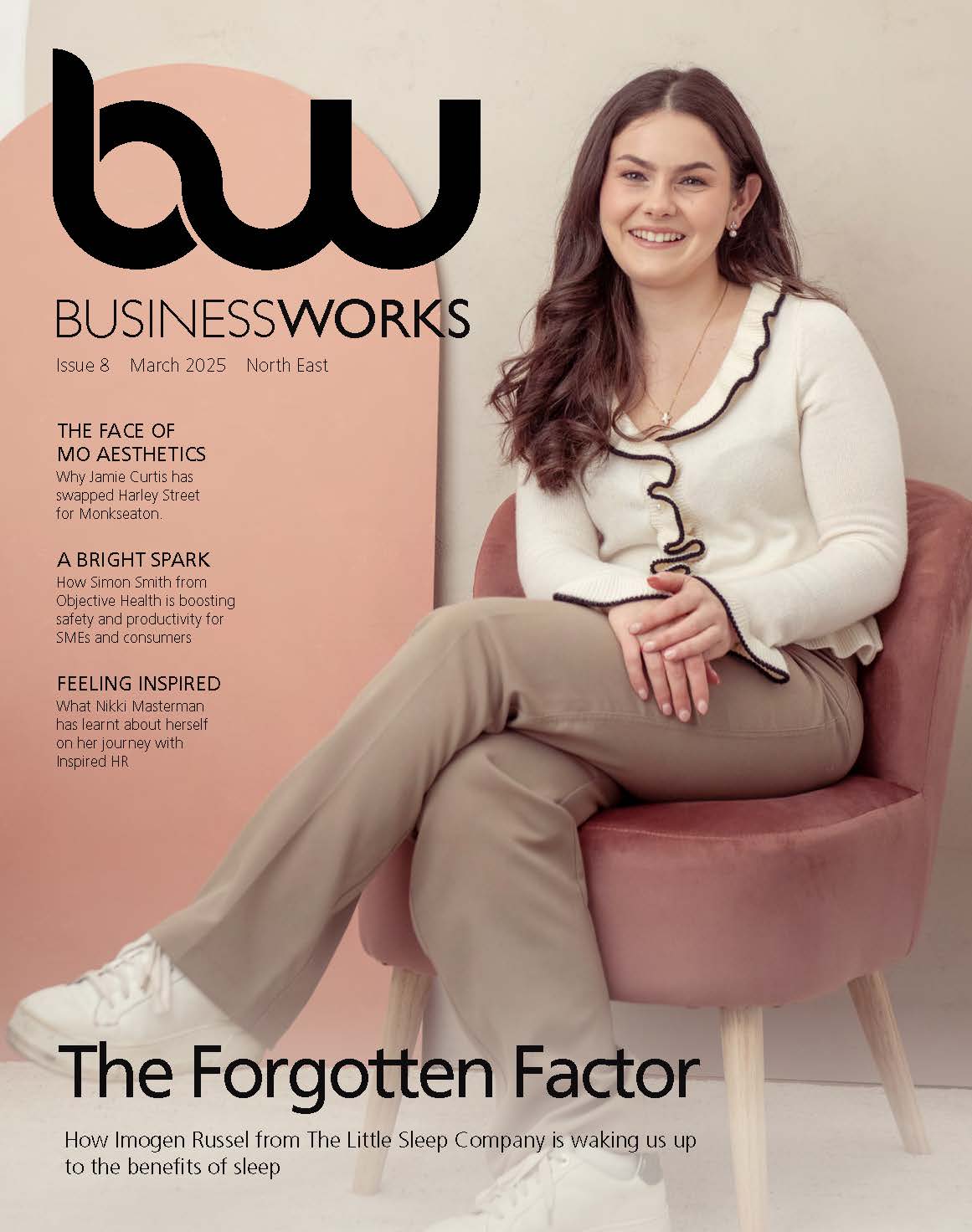For six decades, Blueline Group has built a stellar reputation with its fleet of hundreds of taxis. Operations director, Ben Bell, reveals more about the growth, the challenges the company has faced and how its longstanding investment in technology sets it apart in an increasingly tech-led marketplace.
Sixty-six years after being created by Colin and Audrey Shanks, using their one Austin Morris to carry passengers around Tyneside, Blueline Group has become a household name for its role as a taxi provider, and is more of a family business than ever.
In its third generation of family ownership and management, the company has gone from that single car in 1958 to now operating a fleet of hundreds of taxis, becoming one of the most recognisable names in North East transport over the decades they have served the region.
With market-leading technology underpinning its operation, and ongoing investment to ensure it remains at the top of its game, Blueline continues to grow in what remains a challenging marketplace.
Successfully rebuilding after the huge challenges of the COVID-19 pandemic, Blueline – a significant creator of employment in the region for decades – is also looking to create more roles for taxi drivers across the region, building its 800-strong fleet even further.
And with family values remaining at the heart of the business – with Colin and Audrey’s children Ian, Jane and Paul now making up the board of directors, and grandchildren Ben, Cody, Jack, Pippa and Tom also having roles within Blueline – the team are committed to continuing to develop in the responsible and measured way they always have done.
Grandson, Ben Bell, who is operations director at Blueline Group said: “We’re really proud of our reputation and what we have built. We are a family business in every sense, with several members of our family working here, doing everything from director roles to admin and working as a mechanic. We love what we do.
“The most recent analysis of our customer feedback data shows that we are consistently achieving 99.99 per cent customer satisfaction, which considering how many thousands of journeys we make, is very good but we always want to be better. I really think that’s because we’re a family business and we care. We’ve done this for a long time, and we are now looking to the future with confidence.”
The growth of Blueline – which took its name from the single blue line that ran along the side of Colin and Audrey’s Austin Morris – is a true North East success story.
From humble beginnings has grown a huge name in transport, with the business increasing its geographical reach and fleet size over the decades to at its pre-COVID height operating around 1,200 taxis.
But despite the fact it runs a vital service – or, in some cases, an essential service, such as when it became the main provider of taxis to two COVID vaccination sites during the pandemic – it receives no public funding.
“We run an on-demand, door-to-door, 24/7 service, 365 days a year, supporting passengers across the region, and we do it well. But we don’t usually get funding from anyone,” says Ben.
“Buses, the Metro, they’re given millions of pounds in subsidies and grants every year to provide their service, but we get nothing. We have to do it all on our own.
“And with the challenges we face as a local operator and family business doing our best for the local economy, and what we’ve had to deal with in recent years, that does seem unfair. We need to see better levels of support from local government and the Department for Transport, as many disabled people refer to the taxi industry as the fourth emergency service.”
In addition to the COVID pandemic, which had a devastating impact on passenger numbers and driver retention – with many opting to move to plentiful sources of work such as supermarket and courier home delivery services – the threat now comes from ride hailing app companies, who Ben says may have acted anti-competitively to secure market share so that they can exploit drivers and passengers.
“These global competitors aren’t playing by the same rules as we have to,” says Ben. “We don’t mind competition and get on with our local rivals, but we do feel we’ve been let down by the Department for Transport and the Competition and Markets Authority in allowing them to operate as they are.
“This poses a massive challenge for companies like Blueline, who are competing against global international companies with their bottomless pots of money. It affects us massively.
“The taxi industry is regulated because public protection is of paramount importance. But the exploitative practices of ride hailing apps that use dynamic pricing, meaning they charge customers more when demand for taxis is high, leads to self-employed drivers working for multiple companies at once, which can result in rogue drivers refusing to pick-up a customer booked with us because they will be paid more by a ride hailing app company. Drivers are not allowed to do that, but many do so as they think they will get away with it. All local authorities need to do more to ensure drivers comply with their licence conditions.”
But while competition from multi-billion-pound, tech-led ventures will no doubt be a thorn in Blueline’s side for years to come, the business is continuing to develop, with Blueline’s own investment in software enabling it to stay at the forefront of innovation.
“That is our biggest expense as a business, it’s so important to have that infrastructure,” says Ben.
“There is a huge amount goes into our software. We have separate apps for both the drivers and passengers, then we have website bookings, telephone bookings, button presses, QR codes – we need to always be on top of the technology so all of these work together simultaneously.
“Then we’ve got the automated dispatch service which takes information from all of these different platforms, which is a really complex system. And then there is all the security in place behind everything across our operating centres in Durham, Gateshead, Hartlepool, Newcastle, North Tyneside, Northumberland, South Tyneside, and Sunderland – there’s a lot of work for our IT department.
“It’s an ongoing process to keep on improving what we do and to become the most efficient we can be. We want to make sure our customers can book a taxi and it’ll be there within five to ten minutes. We’re always doing everything we can to get every customer booking covered sooner by a driver.
“We also want our drivers to be able to pick-up their next customer as close as possible to where they drop off their current passenger because that is more efficient for the driver and customers, but because it reduces mileage and emissions. It’s about creating this really efficient network, and we’ll keep on working to make that the best it can be for the benefit of drivers, customers and the planet.”
With its investment in infrastructure and significant presence on social media helping to raise its profile further, Blueline is looking at growth and diversification.
Its executive fleet is one area of potential growth, with the firm looking to build on key prestigious contracts – such as the Emirates contract at Newcastle International Airport – through building its high-end operation.
“I think that’s an area that is not quite fulfilled in the North East, there are a couple of solely executive operators but they don’t have many cars, so we are looking to add more drivers in that area of work,” says Ben.
“But more generally, we’re looking at growth across the business, and to do that we need more drivers. We cover a really big area – Durham, Gateshead, Hartlepool, Newcastle, North Tyneside, Northumberland, South Tyneside, and Sunderland – so there is a big patch to cover. We want to make sure that a taxi is there when people need one, and to be able to meet their need.
“A taxi journey is a specific need. It’s not like fancying a pizza so you decide to order one, you order a taxi because you have somewhere to be. For over 60 years we’ve been there to meet that need, and we want to continue to do that every time someone needs us.”
For more information about Blueline Group, including driver opportunities, visit www.bluelinetaxis.com

